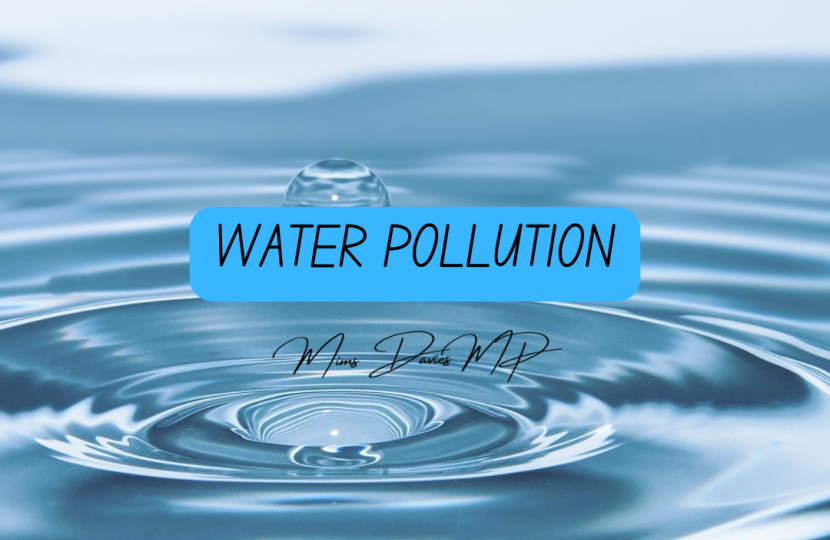
My colleagues and I remain committed to leaving the environment in a better state than we found it. We knew farming activities were, and still are, one of the main sources of water pollution in the UK and the previous Conservative Government was working closely with farmers to reduce the environmental impact of farming and encourage better practices and reforms.
The Environment Act 2021 included a target to reduce nitrogen, phosphorus and sediment pollution from agriculture into the water environment by at least 40 per cent by 2038, compared to a 2018 baseline. In addition, farms were subject to robust regulations on agricultural activities which could cause environmental harm, including through the Farming Rules for Water and the Nitrate Pollution Prevention Regulations. These set out clear standards and a baseline that farmers must comply with so I can reassure you that the UK's legal standards, including the nitrates and silage, slurry and agricultural fuel oil regulations, all require manure produced in livestock housing (including slurry) to be stored responsibly and for a long enough time to ensure it is spread in a way that minimises water pollution.
In addition, the last Government introduced farming schemes to provide revenue and capital funding to help farmers build the infrastructure necessary to manage manures to reduce pollution. The Sustainable Farming Incentive, Countryside Stewardship (CS) and Landscape Recovery schemes provide farmers with funding support for regenerative measures that reduce water pollution and improve biodiversity. CS funding is improving farm infrastructure, such as roofing for manure stores to keep dirty water and effluent separate from rainwater and prevent contamination. For example, a dairy farmer has been able to utilise Sustainable Farming Incentive funding for measures to reduce soil erosion and runoff from their fields, and Slurry Infrastructure Grant funding to expand and cover their slurry store according to best practice.
Finally, the previous Conservative Government also made extra funding available to the Environment Agency for 50 new farm inspectors to ensure that agricultural diffuse pollution regulations are followed. This enabled them to conduct 4,000 farm inspections in the last fiscal year. I am assured that if the Environment Agency finds pollution or significant risk of pollution, it will not hesitate to take further action.
While the last Government was committed to minimising pollution from all types of farming, including production systems where animals are housed indoors for some or all of the year and which accumulate manures and slurries, much remains unclear on whether the new Government will maintain this focus.
Indeed, as you may be aware, it was disappointing that the Labour manifesto only had 87 words on farming so I sympathise with the sector which I imagine is seeking clarification on the new Government's policies.




